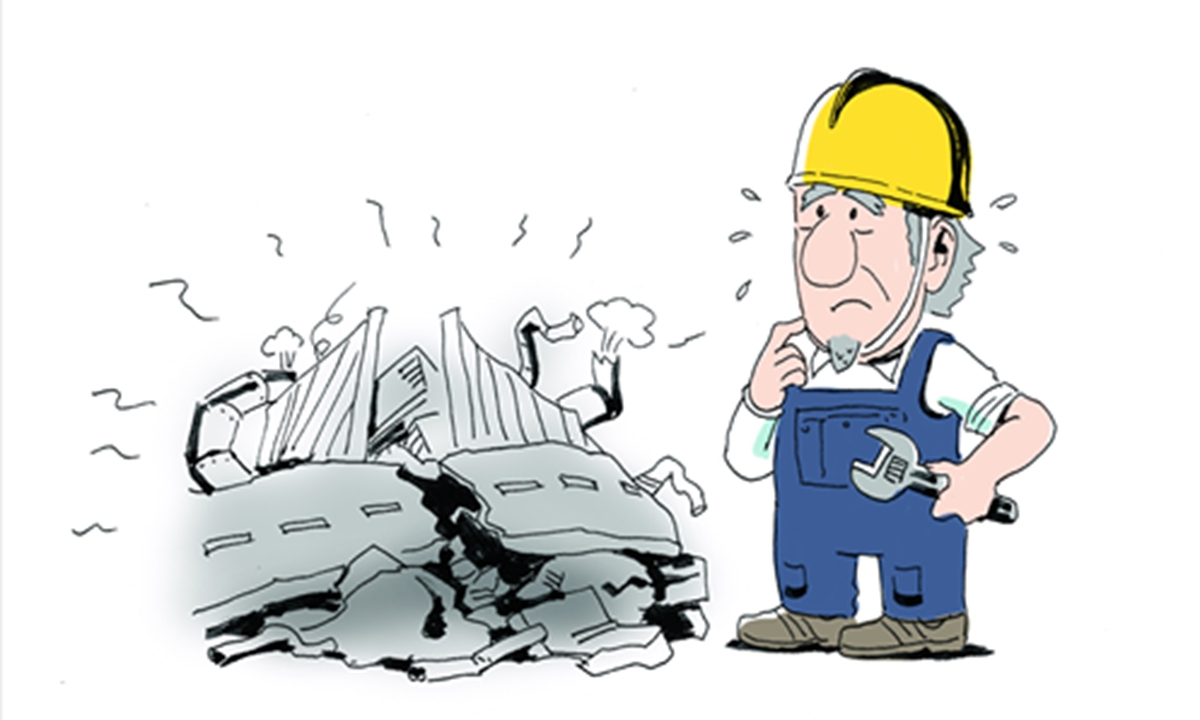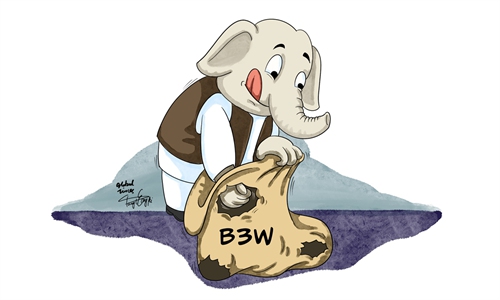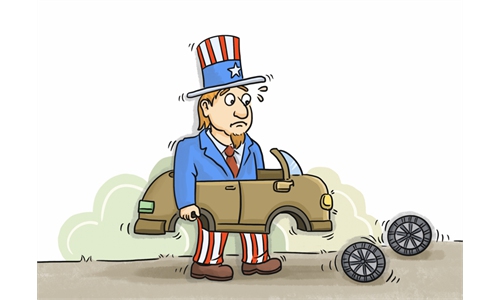
Illustration: Liu Rui/GT
Tesla CEO Elon Musk wrote on Twitter and Sina Weibo on Thursday that "The economic prosperity that China has achieved is truly amazing, especially in infrastructure! I encourage people to visit and see for themselves." This was not the first time Musk praised China's infrastructure construction. He said on Twitter in late February 2018 that "China's progress in advanced infrastructure is more than 100 times faster than the US."Tesla has made large amounts of investment in China, so it is understandable that Musk has a more direct and deeper understanding of China's infrastructure strength. An important reason why China has been able to make such progress in advanced infrastructure lies in the leadership of the Communist Party of China, which has just celebrated its 100th anniversary on Thursday.
Such leadership is beyond comparable for the US, where Republicans build but Democrats dismantle and vice versa. This form of political struggle in the US has led to a lack of coherence in policies about infrastructure, healthcare, diplomacy and so on.
China has an incomparable political party advantage over that of the US. At the same time, the appropriate domestic and foreign policies generated by this advantage - such as the development pattern featuring "dual circulation" - to a maximum extent facilitating the supply of goods, capital, manpower and logistics, thus injecting sufficient impetus for infrastructure construction.
China's infrastructure policies are at the service of the vast majority of people's welfare, rather than out of pure economic considerations. The governments at different levels and enterprises involved take a long-term view of infrastructure, so the projects can go ahead even if they are unprofitable. This will hardly happen in the US.
US President Joe Biden went to Wisconsin on Tuesday to make a pitch for his $1 trillion infrastructure deal. The scale of the bill was drastically reduced, but was still not passed. In addition to calling his bill "a generational investment," he stressed that the deal is important "because China is way out-working us, in terms of infrastructure."
Against the backdrop where the US continues emphasizing competition with China, Biden's "China card" is clearly intended to highlight the urgency of its infrastructure deal. But from another angle, Biden's mentioning of China has once again to some extent reminded ordinary Americans that China has done a better job than the US.
Although Biden may have been trying to gain public support by hyping the "China threat theory," the general public may take it another way, like: "Now that China is doing better than the US, why don't we learn something from China?"
This is a reflection of the completely decoupled ideas between US elites, who are only a small part, and the vast ordinary American people. Take infrastructure projects. Ordinary people are concerned about the improvement of their livelihoods, but the elites' focus is on the political as well as economic benefits for them.
Striving to promote his infrastructure deal, Biden is actually working hard to gain himself and the Democratic Party a better reputation. Republicans clearly don't want him to succeed. The political infighting has had a direct impact on the development of a wide range of areas represented by infrastructure in the US.
The CBS News reported that Democrats are likely to use the "budget reconciliation process" to help pass "a larger package." However, even though it is passed, the package will very probably face many roadblocks in its implementation. For reference, Obamacare was passed by the US Congress but its enforcement has been patchy. Therefore, Biden's infrastructure plan may eventually turn out to be a piece of empty rhetoric - it has promised the American people a lot, but they can barely get anything from it.
The US has been advertising itself as a model for the rest of the world. But in fact, people can clearly see the flaws in the US - and the flaws are quite many. Biden said the infrastructure agreement "matters so much" because "it's a signal to ourselves and to the world that American democracy can come through and deliver for all our people" and because "it's living proof that we can still come together in this country and accomplish something big and transformational."
However, using such inspiring words to stimulate Americans can do little to change the fact that the US is now more of a "broken barrel."
The author is professor at the Institute of International Relations of the China Foreign Affairs University. opinion@globaltimes.com.cn



